When the COVID-19 pandemic first hit, people all over the world began taking frigid ocean dips.
In Vancouver, where residents have a century-old tradition of plunging into the Burrard Inlet on New Year’s Eve, the cold-water habit has taken off, especially along the shores of English Bay.
It’s here, away from screens and bad news, that they can reconnect with themselves and the natural world.
Feet sinking into damp sand, the mind calms to the sound of seagulls and lapping waves. As the body enters the water — usually slowly and with shallow breaths that deepen with each step — thoughts are replaced by sensations. A beating heart. Tingling skin. Throbbing fingers as vital organs call the blood away for warmth. Pain. Quiet.
Back on shore, fully clothed, blood floods to the limbs and brain, easing inflammation and releasing endorphins and dopamine. Some call it the “afterglow.”
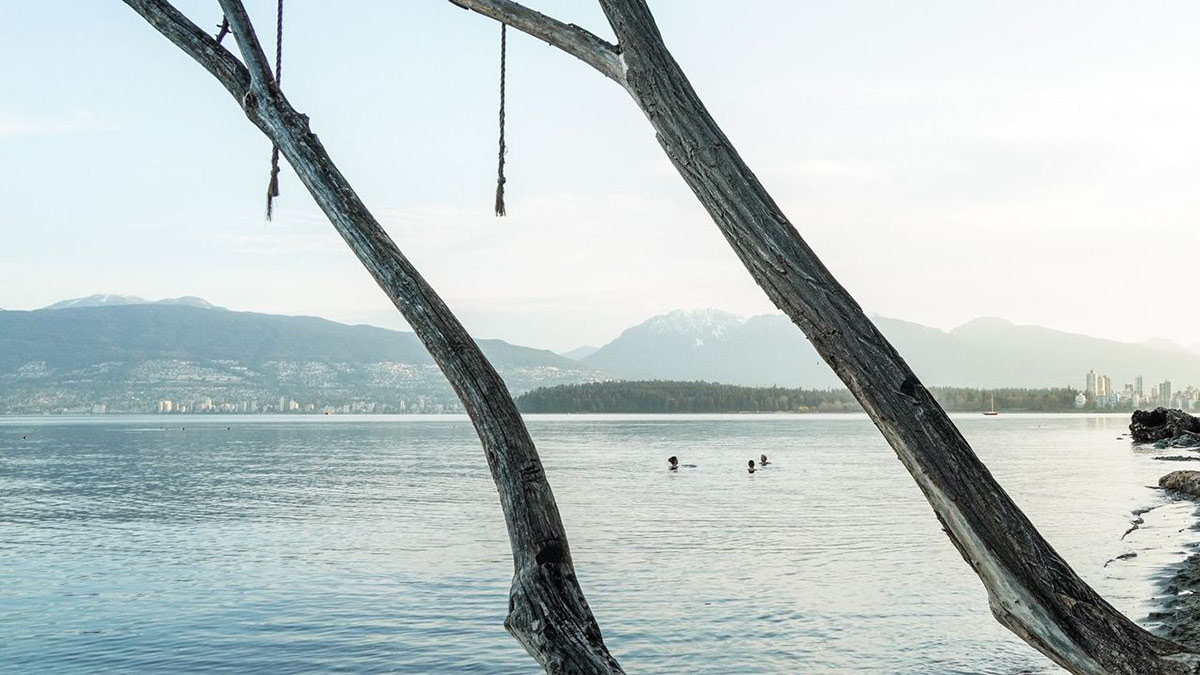
Here’s the story of five Vancouverites who have found vitality and renewal in the wintery waters around Kitsilano Beach.
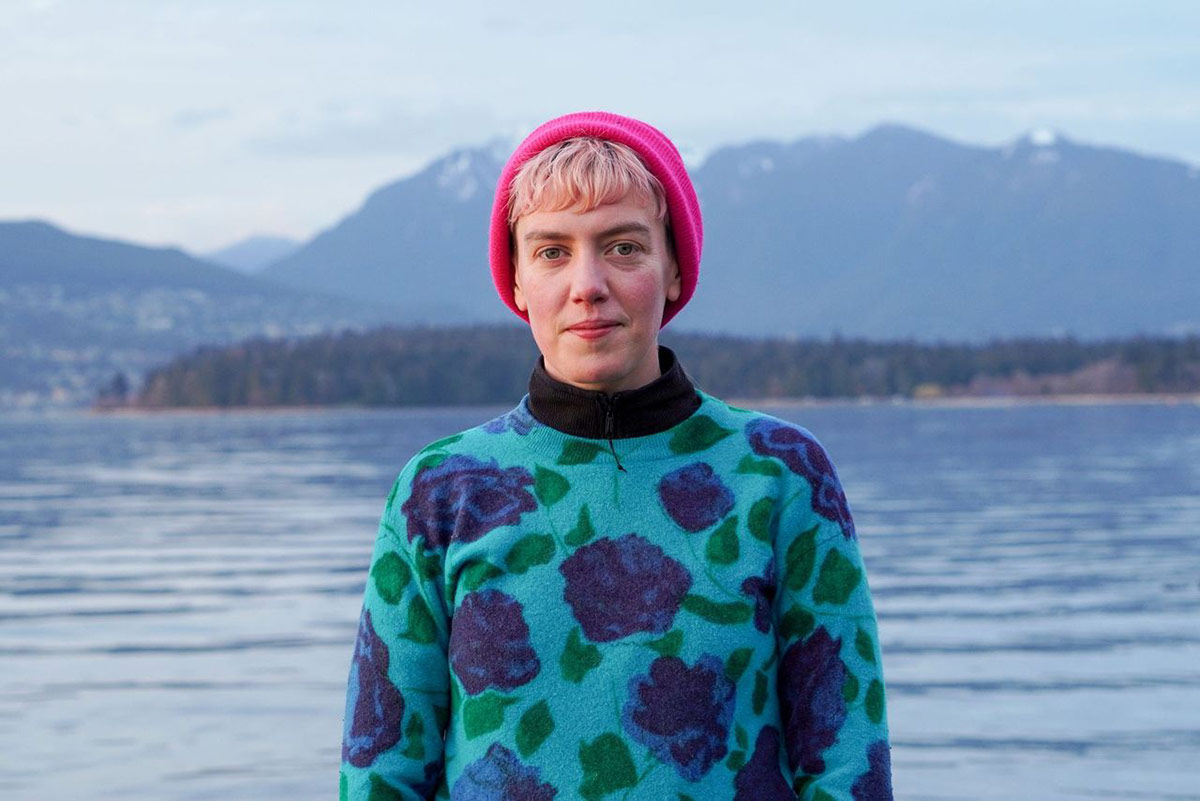
Claire Love Wilson, 32, multidisciplinary artist
By the end of December, I was feeling some pretty serious burnout — energetically, emotionally, spiritually. And so when the new year came, I just had this deep feeling, which was to go down to the water. From a young age, I’ve been called like this. I have a little voice inside that says get in the water.
When I approach the ocean, I try to get clear on an intention, something that I either want to let go of or call in. And then I take some time to feel in my body where I am and acknowledge the land I’m on. I acknowledge the Musqueam, Squamish and Tsleil-Waututh nations — the ancestors and stewards of this land — and give thanks for the incredible privilege of living here as a guest. Then I usually call on my Scottish ancestors for strength.
Right after I sit in the water, there’s usually a moment of panic. My body convulses. Then I take a deep breath. That’s when I arrive fully in the water. Sometimes, it’s absolutely quiet. There’s no thoughts. There’s no anything. It’s just this quietness and seeing and feeling everything around me. It’s a big expansive feeling.
My dips are never the same but I generally feel more awake. It’s like my body is tingling but also that my energy is vibrating. That makes me feel more connected to other things vibrating around me like trees, water, rocks, sand, people.
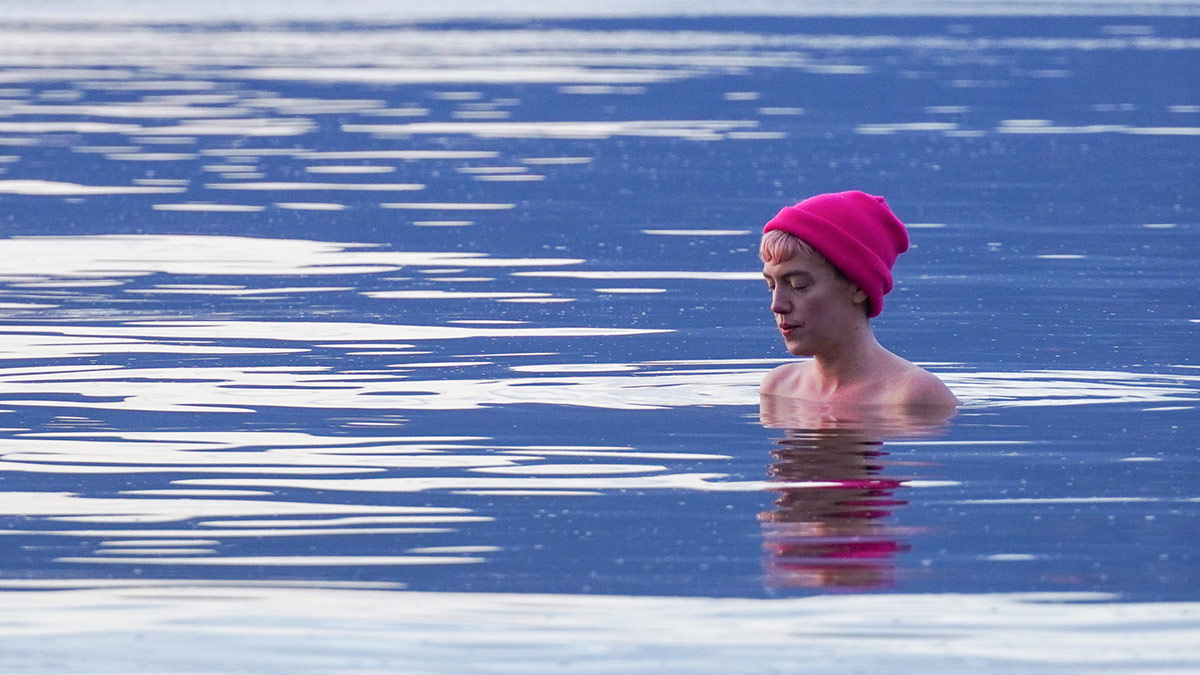
I keep coming back because there’s always something every week to let go of, release, or call in. And the chance to be in deeper gratitude around being alive and being on this land and what that means. Whenever I get close to the water, it just feels right.
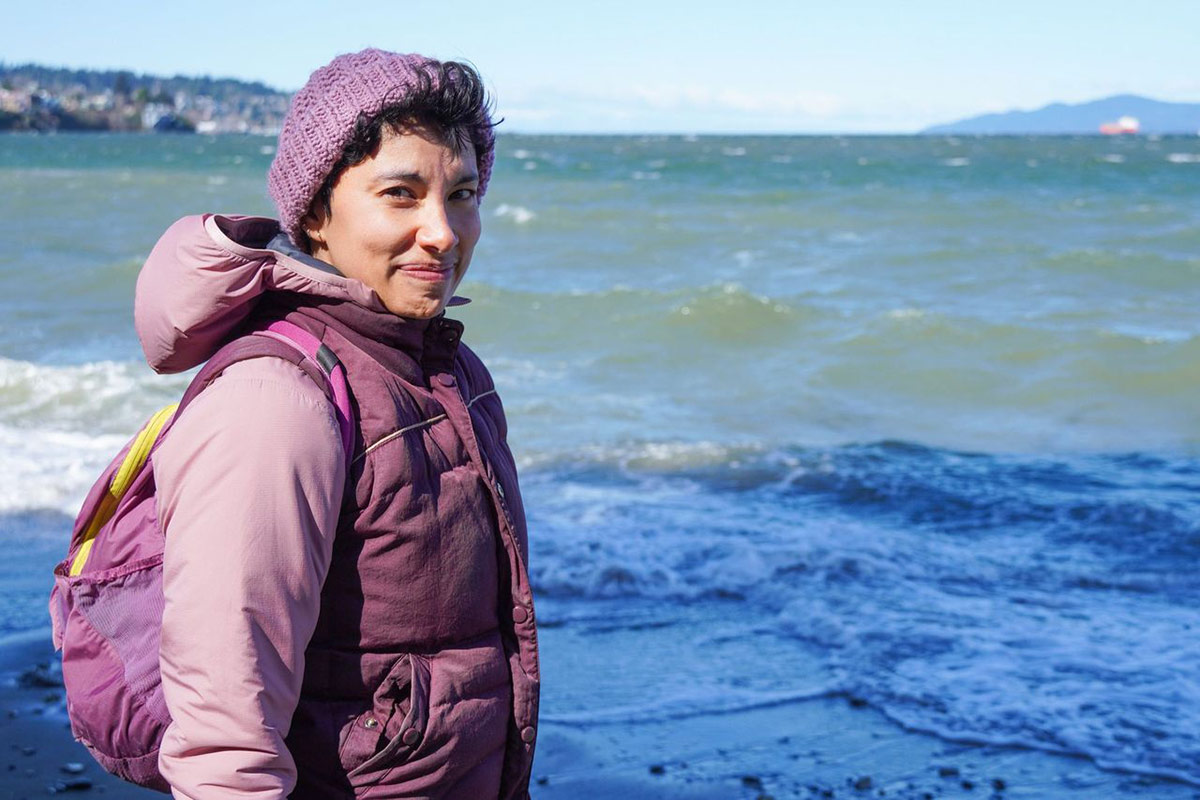
AJ Simmons, 29, actor
I grew up having a pretty intense fear of water and the unknown connected to trauma. So I wasn’t thinking about dipping when my partner, Claire, told me about her New Year’s Eve ritual. But I was drawn to try something new. The impulse it called up in me was courage — to face my fear of the ocean.
I live with complex post-traumatic stress disorder, so trauma is not unfamiliar to my body. When I’m in a trauma response, I tend to freeze, and that was the feeling I had leading up to my first dip. My mind was like, Why? What are you doing to yourself? It was so painful. I felt like I was being stabbed all over with needles. Everything told me to get out. Thankfully, the sun was out and it coursed through me back on the beach. I felt calm and had an urge to go in again. I decided that my first dip was a release; the second was a welcoming.
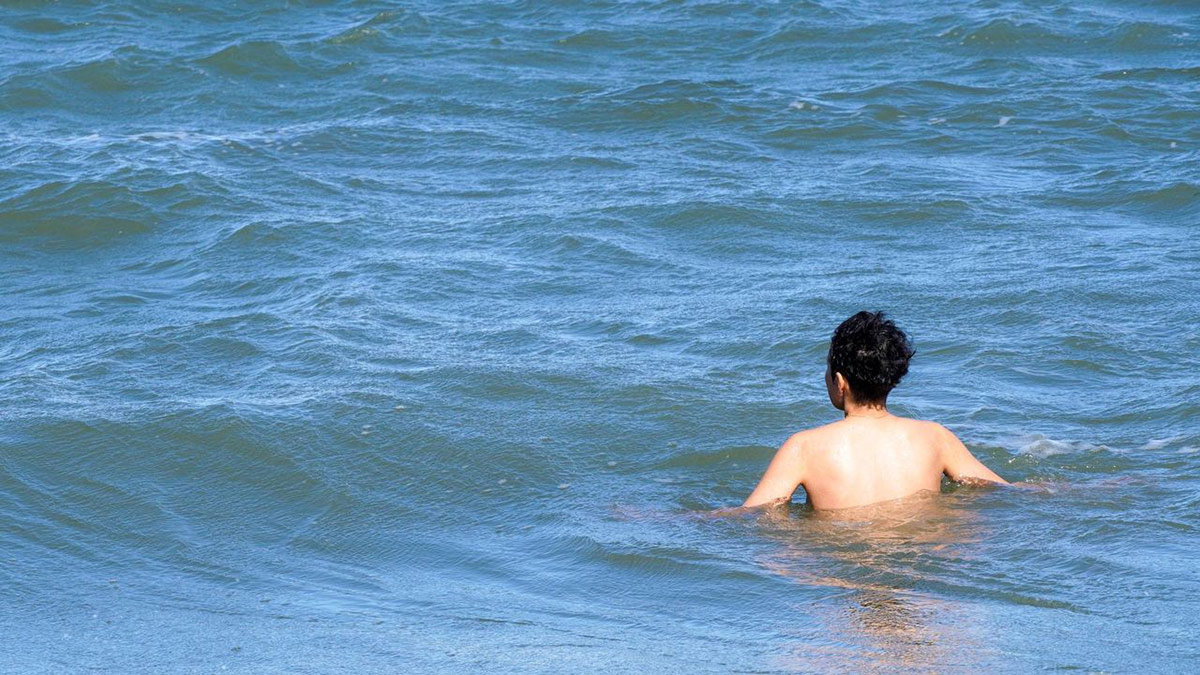
It was such a feeling of accomplishment that I wanted to do it more. Now I go about every week. Dipping is something I can control. I can go in. I can listen to my body. I can choose this amidst everything that has felt so unstable. The fear is still there. I often cry as soon as the water hits my belly button and I’m forced to breathe deeply. But I’m now able to let the emotions move through me.
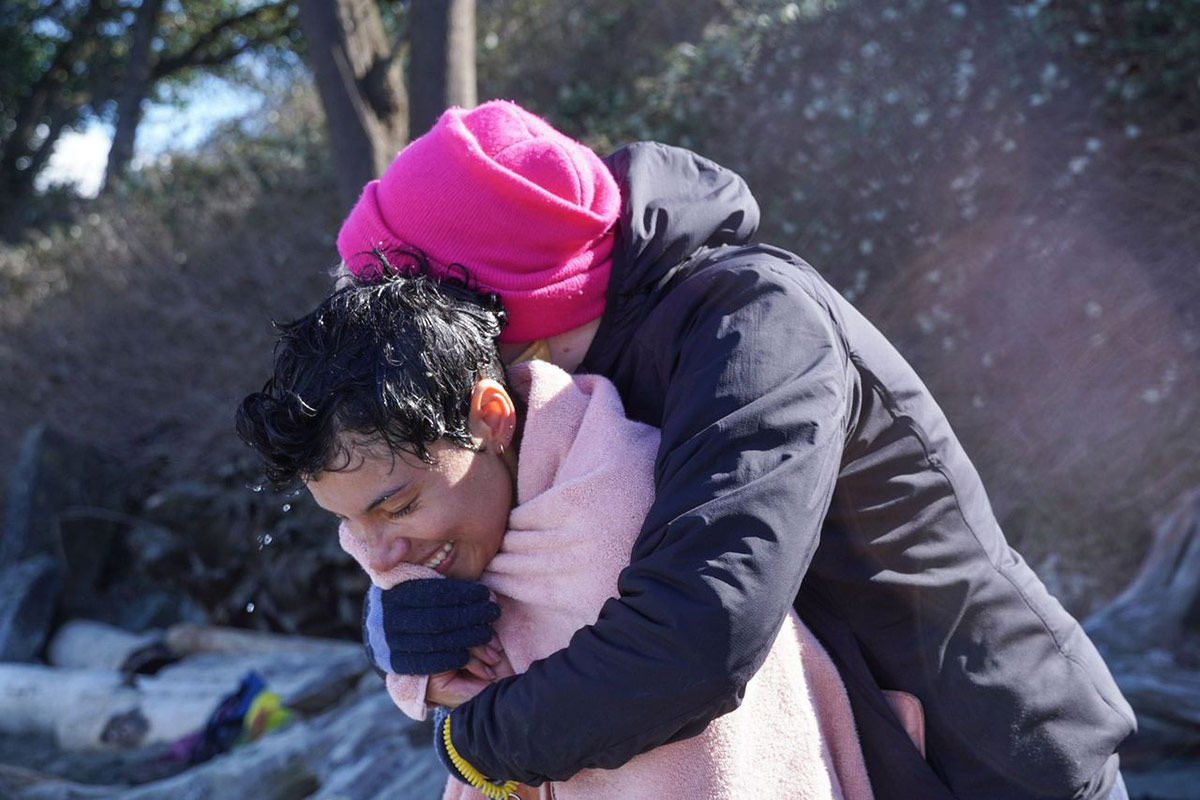
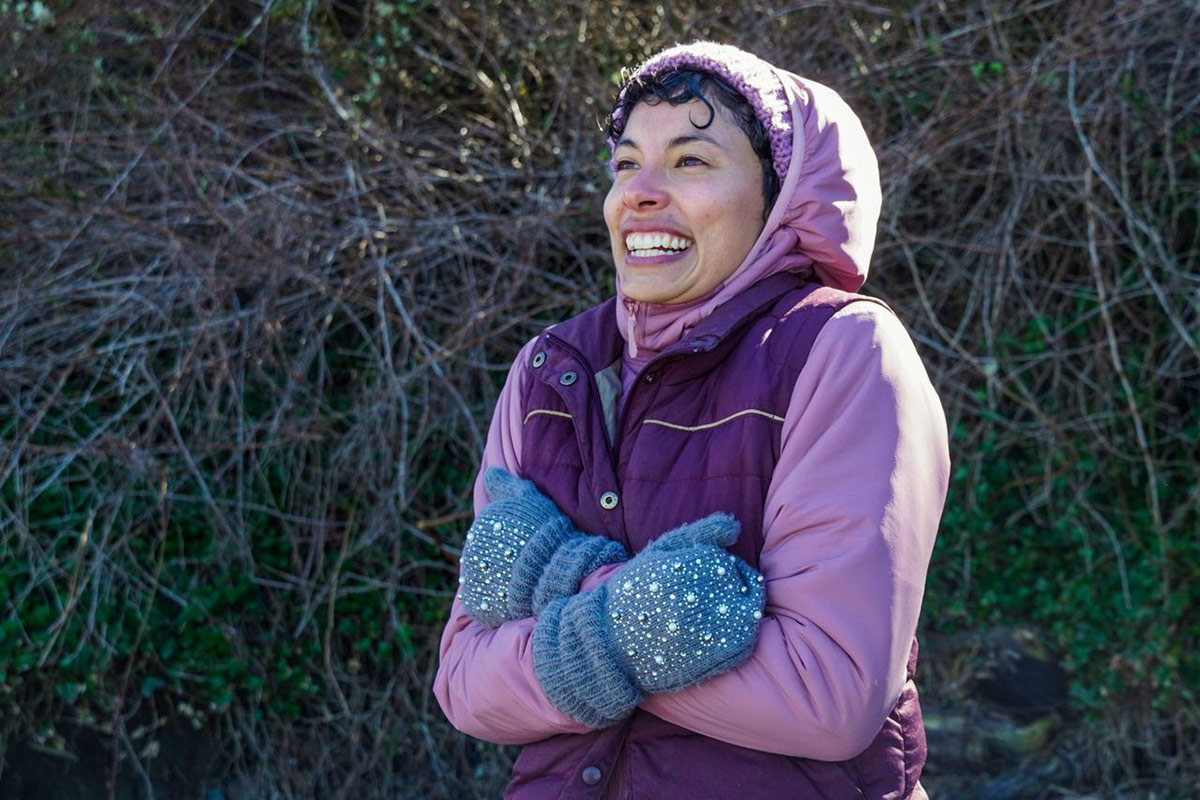
My favourite part of the dip is when it’s done. That feeling of “Oh my god, I did it.” And my body coming alive with sensations from the wind brushing against my skin to the sand squished between my toes. Even if I forget the dip throughout the day, my spirit knows it happened. It knows I’ve done something powerful and healing for my body and in relationship with the land and water. I feel strong. I feel courageous. It helps re-teach my body that it’s okay to be afraid.
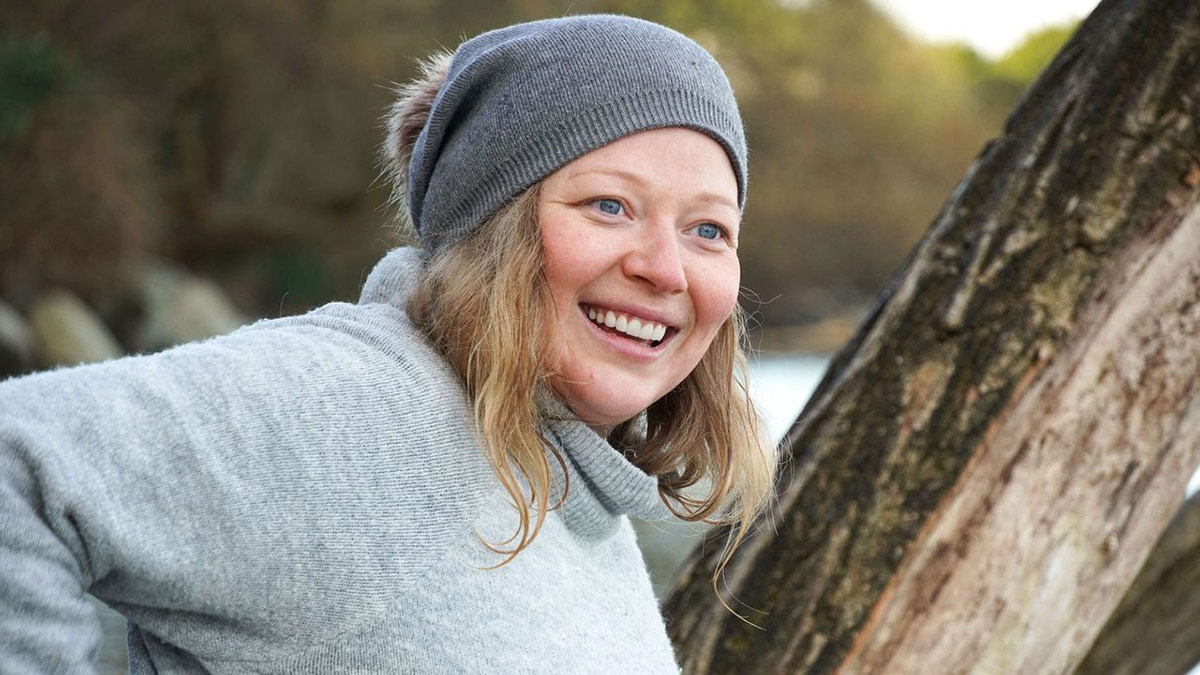
Polina Goudkova, 36, actor
The mask requirement at the beginning of the pandemic triggered some PTSD symptoms. Even when I got a doctor’s note that said I couldn’t wear a mask, people would not take my word for it. I was afraid to go to the grocery store. I had so much anxiety that I started sleeping with the lights on. I was in a constant state of fight, flight or freeze.
At a psychiatric assessment, I was faced with a decision between getting prescribed medication, which I did not want to do, or trying other options. Somebody suggested grounding, just standing with my feet on the earth for 10 to 15 minutes a day. I was like, “Well, I’m right by the beach. Why don’t I stand in the sand?”
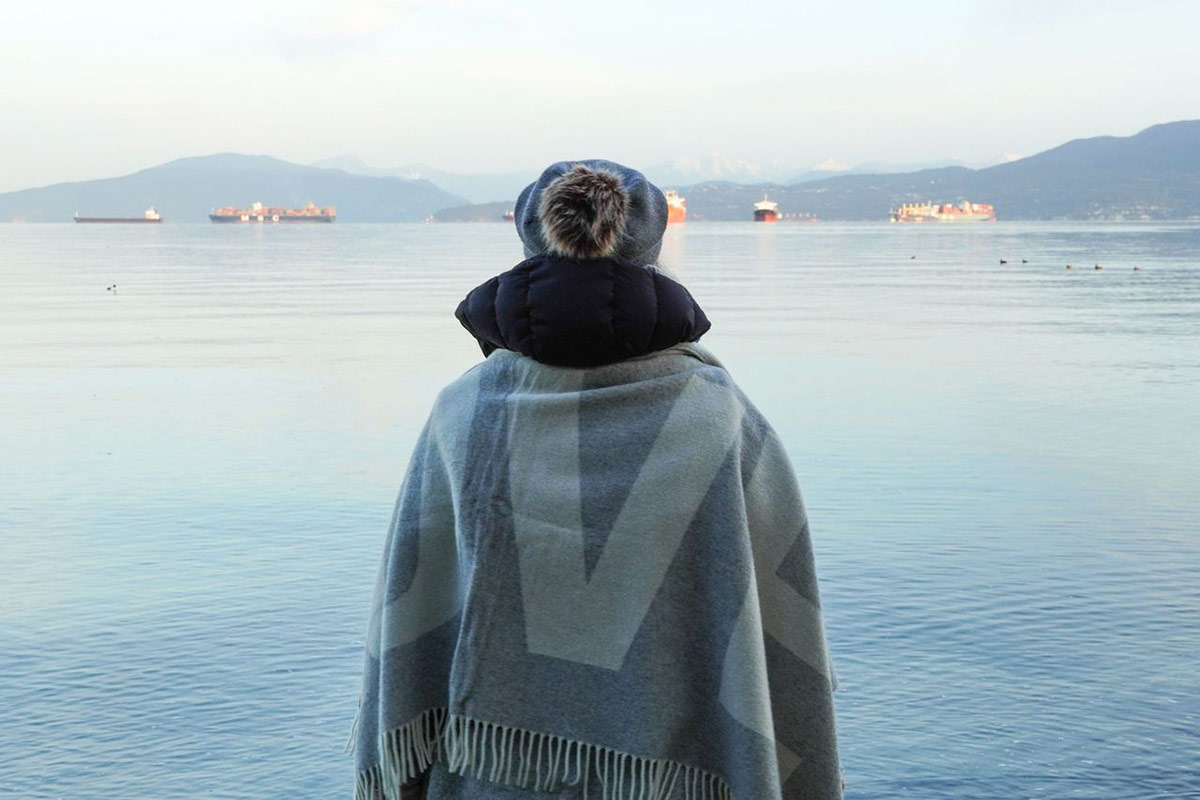
I remembered that two years earlier I had a bad sprain and going into the water healed my foot. So I tried that again. It was shocking but I felt so alive. It became my prescription drug.
When my sister and I were little, Russia was going through this movement of cold-water dipping and swimming. After every bath, my parents would pour three buckets of cold water on us, and we would see them do the same. They always put on brave faces, so maybe I’m tapping into that inner bravery. There’s something about the water that brings me back home.
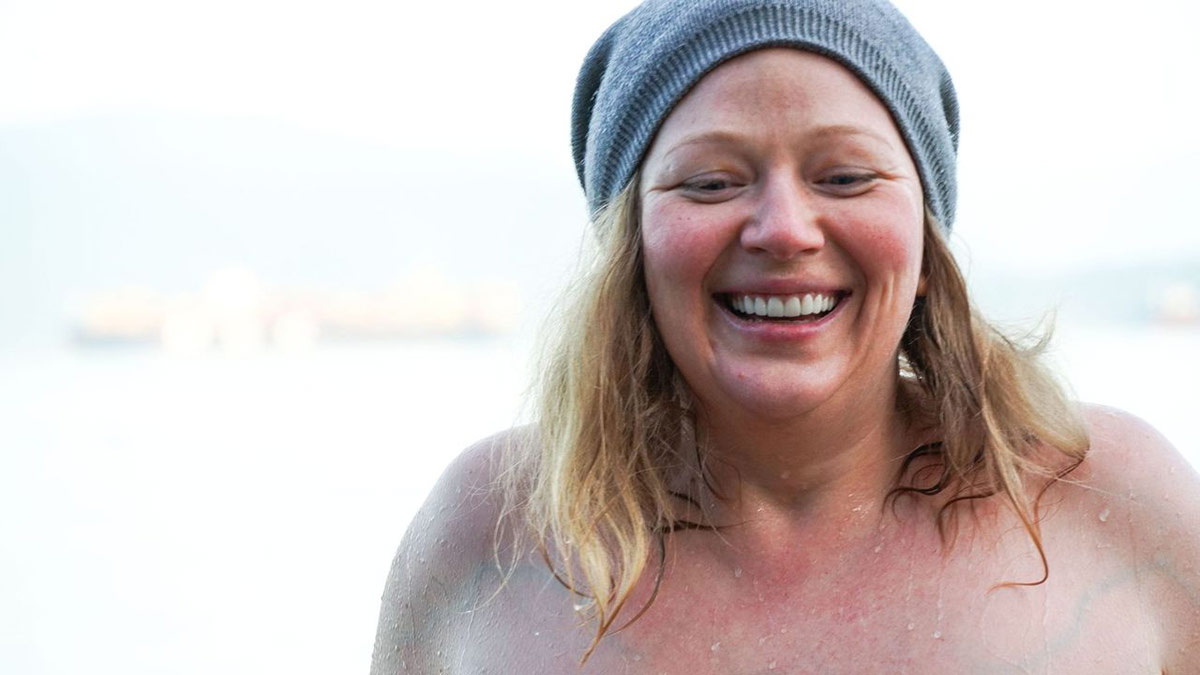
When I fully submerge, I realize that whatever story I made in my mind about how cold the water is and how difficult it’s going to be is not true. It’s never as bad as I imagined. The feeling I get afterward is that I’m a superhero, that I’ve done something incredible. Even if I don’t do anything else for the rest of the day, I feel like a superhero. I think this is going to be my tool for the rest of my life.
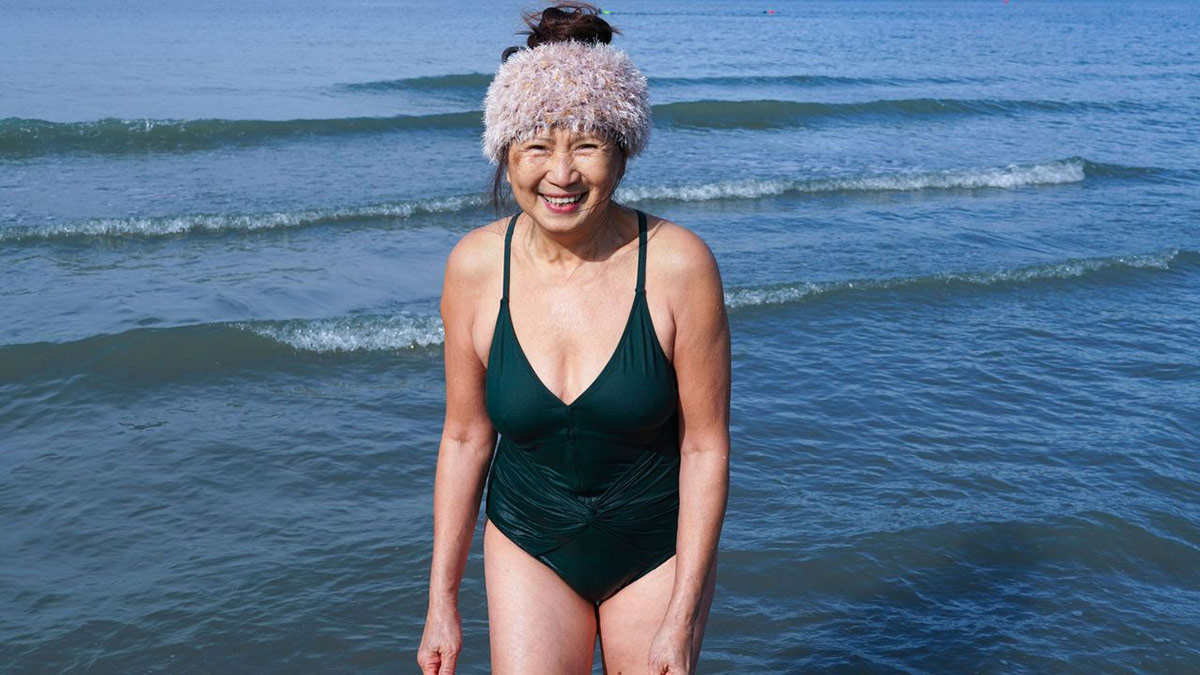
Cecilia Garcia, 72, cryptocurrency consultant
The hardest time in life is the hours before we die, because of fear of the unknown. That’s why it’s good to have somebody in prayer. Since COVID, I know a lot of baby boomers have died alone. So I sing “Ave Maria,” the Hail Mary in Latin, for everybody.
In Chinese, we believe that when people die, the spirit is hopping on the water. If you look at Genesis, it mentions God hovering over the water to make the day and light. Water is the only substance that has three states — steam, water and ice — like the Trinity. It’s really Godly. It’s a sign of living.
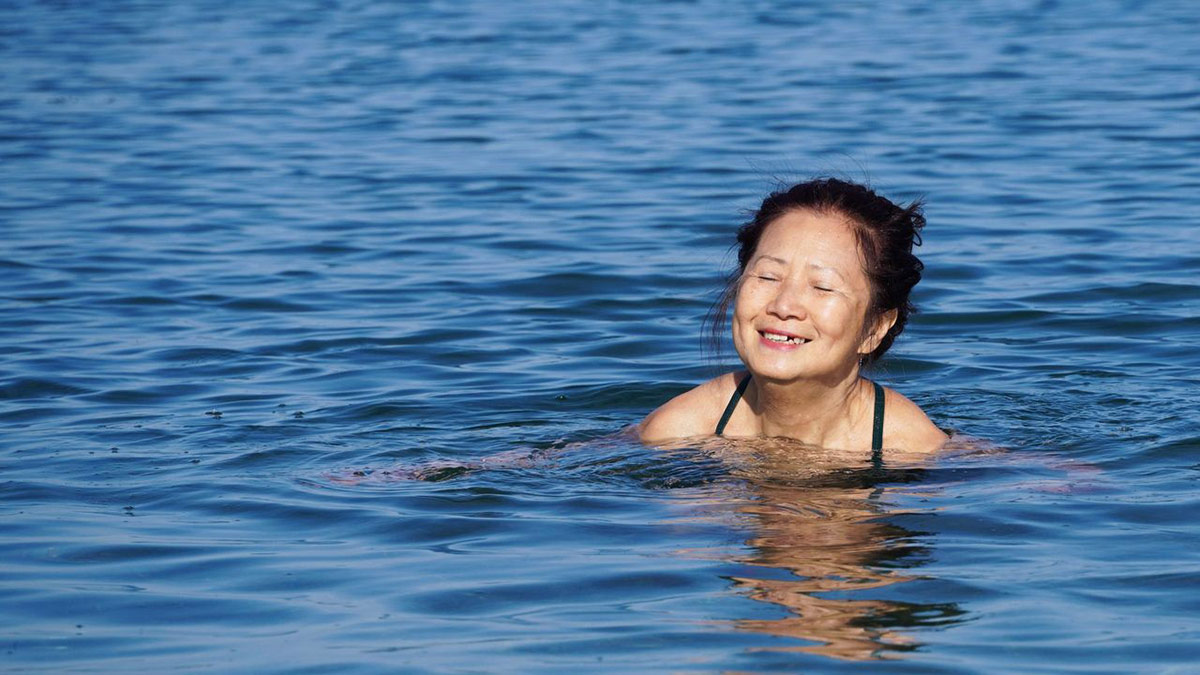
I made a commitment to get in the water with my whole body by February, when I turned 72. I had come down to the beach to do yoga because the open air was not locked down. I saw some people go into the water. But at that time, I thought, I’m not going to do that. For a few months, I saw many groups doing it, and they seemed to have a lot of fun. I was curious. I walked down after yoga and dipped my feet in. Little did I know that one day, I’d say, “No, I’m going to try it.”
I was really quick dipping the first time. I did just one Hail Mary, when now I do five. But when I came out of the water, the heat came from inside, burning hot. Anything that comes from inside is so powerful. I was addicted. I’ve come every day since.
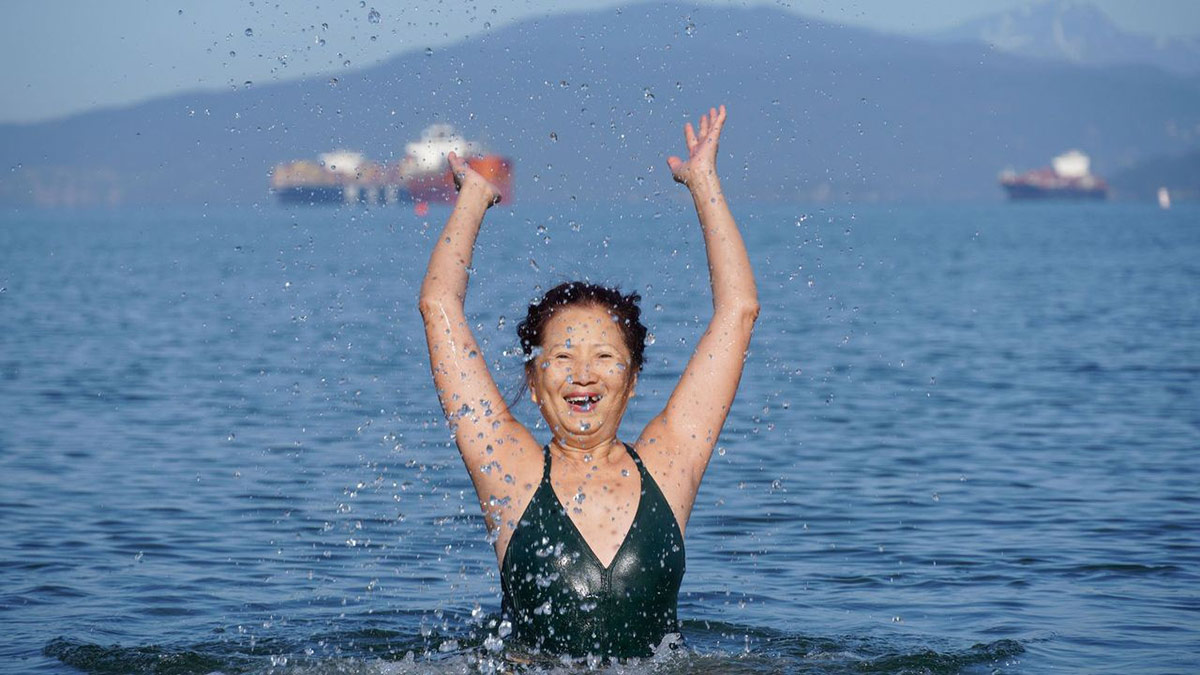
I live a really good life. The only downside is, at my age, it’s easy to fall into complacency. But this gives me a routine and it’s really refreshing. You come out here and look at the mountains and the water. It doesn’t matter if it rains. I take my umbrella and go into the water anyway. It’s delightful. You feel like the whole world is wrapping around you because all water is connected.
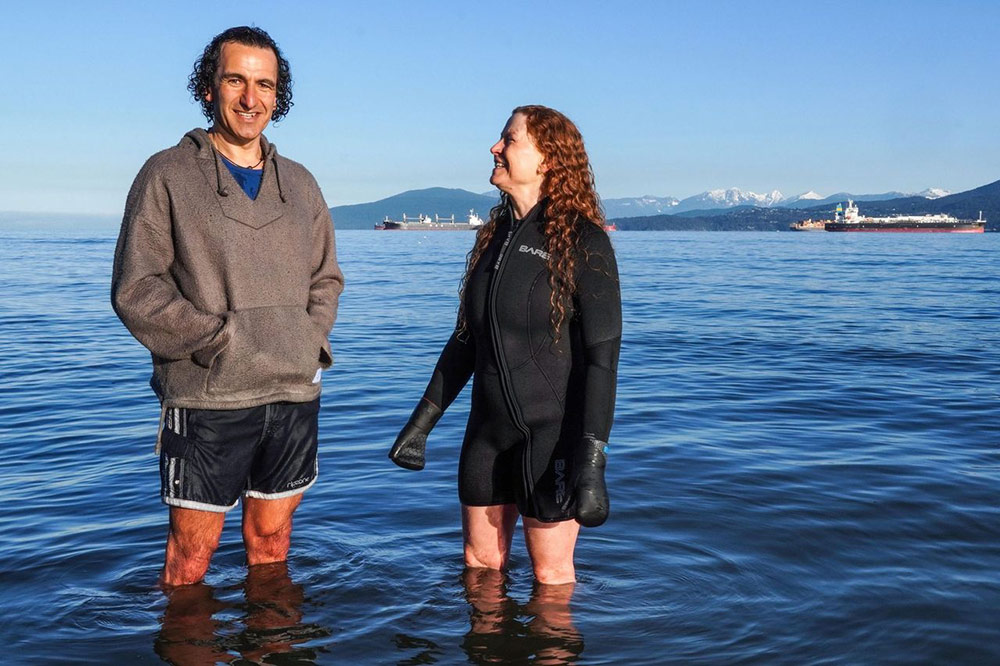
Simon Donner, 50, UBC climate scientist and professor
My wife Jo-Ann and I are water people. We have both been paddling and doing water sports for years. When the pandemic began, we thought it would be a nice thing to just start a streak — to go in the water every day.
It’s not strange for us to do something like that. When we got engaged, we went in the water and decided to keep going until the wedding, which was 120 days. We got married at Volunteer Park in our bathing suits and people from the wedding party jumped in the ocean with us. In April 2020, we said, “Well, we’ll do this while COVID is going on,” not being epidemiologists. Not realizing that it might be more than a year.
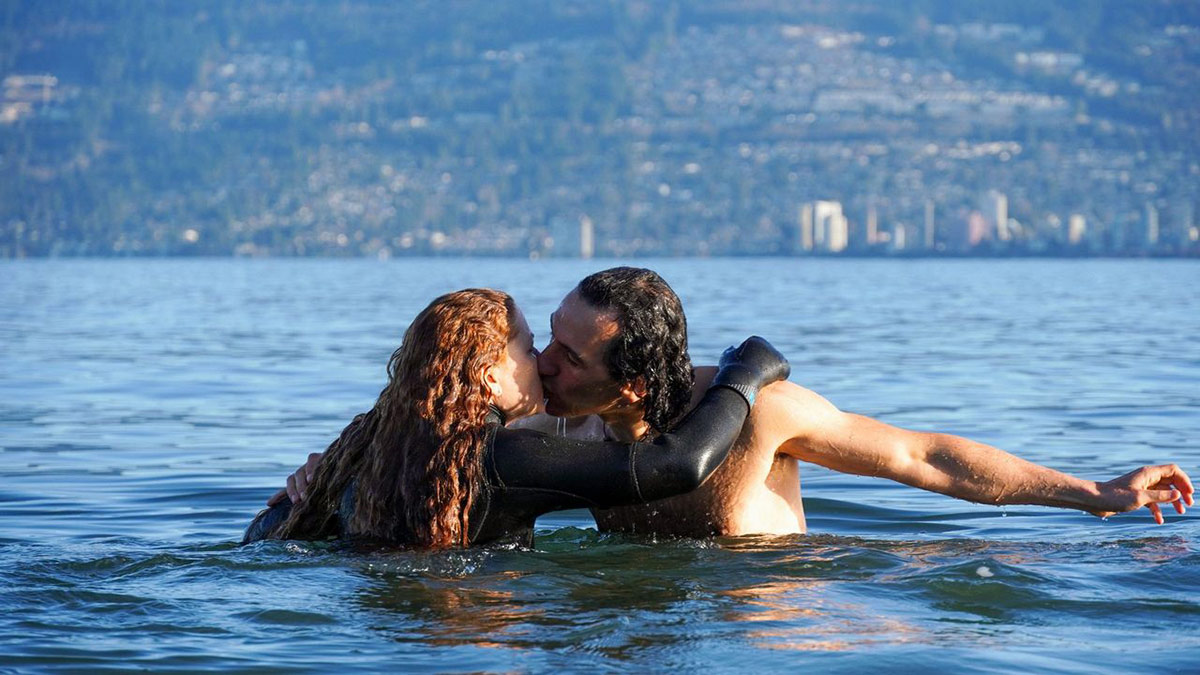
I know people do this for supposed physical health, but I think it’s also good for mental health. The fact that we could walk into the water in the middle of January while talking about something else. The water is six or seven degrees and we don’t really notice it that much. It’s been this great lesson in how powerful your mind is. How you feel at a certain time is so much about how you approach the situation.
It’s interesting how normal something that seems unusual can become to you, and the power of your brain to deal with discomfort. We’d have these days when we’d walk into the water and not even really realize it. We were coming up the stairs once and I’m like, “You realize it’s the beginning of February, we just walked into the ocean and back at 7:30 in the morning, and we didn’t even discuss the fact that we did that.”
We kept it going until mid-summer — 490 days in a row. I do miss the rhythm of going in the water every day. I may start another streak. ![]()
Read more: Health, Photo Essays


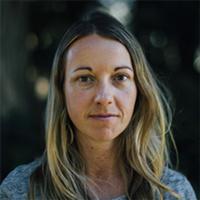
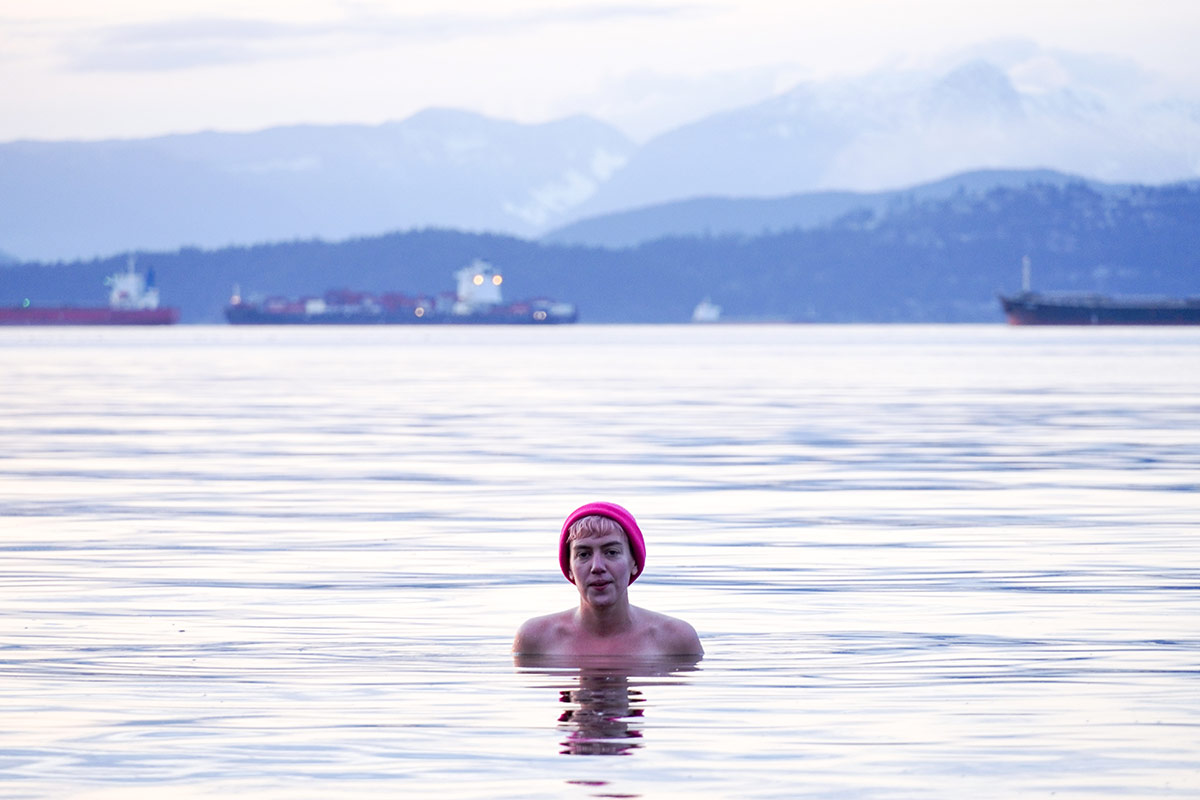












Tyee Commenting Guidelines
Comments that violate guidelines risk being deleted, and violations may result in a temporary or permanent user ban. Maintain the spirit of good conversation to stay in the discussion.
*Please note The Tyee is not a forum for spreading misinformation about COVID-19, denying its existence or minimizing its risk to public health.
Do:
Do not: